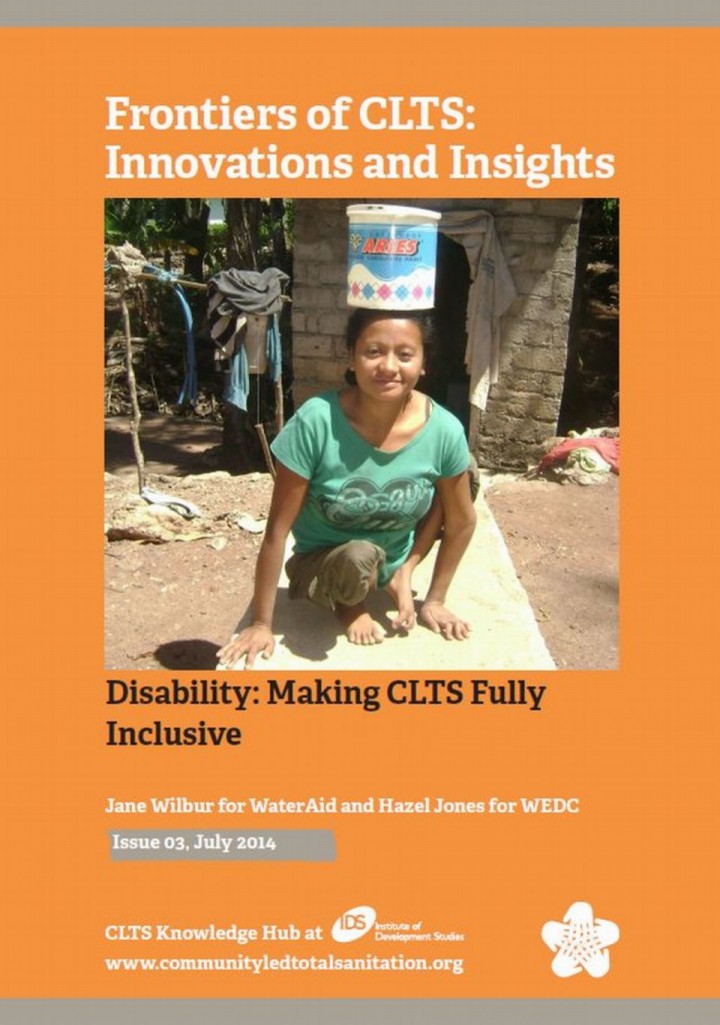Disability: Making CLTS Fully Inclusive - Frontiers of CLTS: Innovations and Insights Issue 3
Wilbur, J., Jones, H. (2014)

Published in: 2014
Pages: 24
Publisher:
Institute of Development Studies, Brighton, UK
Author:
Wilbur, J., Jones, H.
Uploaded by:
Carola Israel
Partner profile:
common upload
5196 Views
56 Downloads
Content - Summary
CLTS aims at total sanitation. For that it has to be inclusive. The CLTS Handbook stresses facilitating people to do their own appraisal and sanitation profile, community self-help and cooperation, and social solidarity between the rich and poor. There are ethical reasons for being inclusive. There is also the bottom line that while any open defecation continues, all are affected.
The Handbook message to facilitators and those who follow up on triggering is:
Be alert for and promote emerging donors in the community. Facilitate the identification of those who are weaker, poorer, landless or otherwise unable to construct their own toilets. These may be old people, widows, single mothers, the disabled, those who are chronically sick or others. Ask the gathered community how they will solve their problems. Do not make suggestions. Proposals for action can be expected in communities where total sanitation has been fully understood. Your role is to facilitate the linkages between the weaker and poorer and those who are better off and willing to help them, whether through labour for digging and construction, materials, money or loans (Kar with Chambers 2008).
This issue of Frontiers of CLTS takes this further, focusing on People with disabilities and particular needs for access. There are many forms of disability, including mobility impairments, sensory impairments (affecting sight or hearing), chronic illness, impairments caused by older age or mental health issues. People affected tend not to be present at triggering, to lack voice in the community, to have their needs overlooked, and may even be hidden by their families. This issue outlines the reality of the experiences of people with disabilities, the varied nature of their needs and how they can be met, and concludes with practical recommendations for facilitators and all those engaged in CLTS to make the different phases and processes of CLTS more inclusive.
Bibliographic information
Wilbur, J., Jones, H. (2014). Disability: Making CLTS Fully Inclusive - Frontiers of CLTS: Innovations and Insights Issue 3. Institute of Development Studies, Brighton, UK
Filter tags
English Sustainable WASH in institutions and gender equality (WG7)















